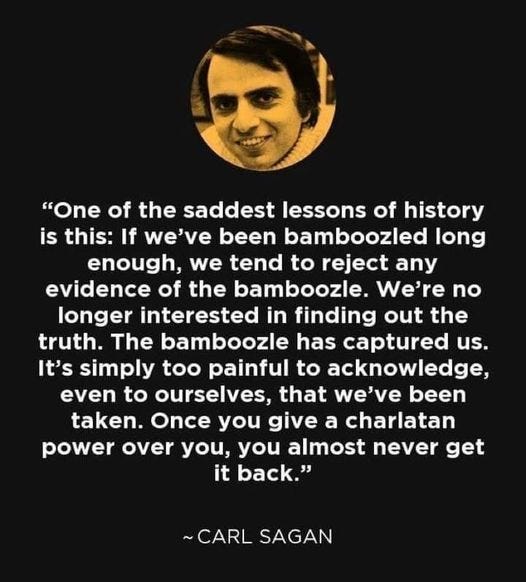Today’s Contemplation: Collapse Cometh CXVII
Our Banking System: Government vs. Private Control, Part 2
April 6, 2023 (original posting date)
Our Banking System: Government vs. Private Control, Part 2
In Part 1 of this now 4-part Contemplation, I argue that nationalising banks would not benefit the ‘masses’ much if at all more than our present profit-seeking, privatised ones because both government and private financial institutions are part of a ruling caste within large, complex societies that serve their own interests, not those of the hoi polloi. These interests (control/expansion of the wealth-generating/-extracting systems that ensure revenue streams), unfortunately, contribute to and exacerbate our predicament of ecological overshoot because they are dependent upon perpetual growth.
Further, I go on to suggest that the narrative that governments (of all types) are ‘representative’ and put the welfare of the ‘masses’ at the forefront of their decision-making is part of attempts to help legitimise the status quo power and wealth structures that benefit the elite. Pre/history has demonstrated that the elite attempt to establish a form of ‘moral validity’ for their privileged positions in society primarily through grand narratives (e.g., descended from the gods; elected by ‘the people’). Creation and manipulation of such stories has been found to be more cost effective in maintaining/establishing control within a large, complex society than violence and coercion — a form of control that occurs subtly but also increasingly as moral validity narratives break down.
These stories about the elite being stewards of society-at-large have come about as a result of using a portion of society’s surpluses (especially energy) to fund legitimisation activities and supporters (e.g., priesthood, monumental architecture, bureaucracies, elections). In addition, and in more recent times, the tremendous surplus net energy provided by fossil fuels — on top of their control of fiat currency systems — has benefited the elite ruling class by allowing them to extract even more wealth and thus gain more power/prestige, but also to allocate more to these legitimisation activities and create larger shared economic interests in order to get a portion of society (especially bureaucrats and wealthier citizens) to support and defend them and the systems that allow the wealth extraction and consolidation to continue.
One of the common narratives that has arisen in the past few decades with the recognition (at least by some) that there exist limits to growth and that as a result of our constant expansion we are over-extracting finite resources, over-loading planetary sinks, and for all intents and purposes well into ecological overshoot is that of a managed degrowth/descent. Believing that governments ‘serve the people’, many (most?) clamour for our sociopolitical systems to lead the charge for a societal shift towards sustainability via a ‘managed decline’.
Demands by a population (like virtually everything, especially perceived crises) are leveraged by the ruling caste to help them meet their primary goal/motivation: expansion of the systems that provide their revenue streams — the very opposite of what the planet and its inhabitants need for long-term survival. Secondarily, but also quite important to the ruling elite, this request for them to ‘manage’ our quest for sustainability affords them the chance to tighten their controlling grip upon the masses.
This societal request to ‘lead’ a transformation is a wonderful opportunity for the ruling caste to craft narratives that the governing elite are ‘responsive’, ‘representative’, and ‘in service’ to the wishes of the people. Because, isn’t governance (especially ‘democracy’) all about the politicians putting the people’s wants and needs at the forefront of their decisions and actions?
If we look at those nations/regions that are supposedly on the ‘right track’ around this ‘degrowth’ (or at least moving in the ‘correct’ direction), we will see that their primary course of action has been to pursue ‘green growth’. One cannot, except in the very rare circumstances if at all, find a government that doesn’t advocate continuing growth/expansion — especially of the economy, but also of one’s population — on the heels of discussing sustainability and addressing environmental concerns.
A critical evaluation of this path (even just a gentle scratch at its surface), however, uncovers that it is still very much the problematic ‘growth’ narrative — that happens to be the fundamental driver of our ecological overshoot — but simply wrapped in a veil of ‘green’ and promising a relatively smooth transition to a ‘clean economy’ based upon ‘carbon-free’ energy and associated jobs; jobs that happen to be in heavy and associated production industries that the ruling class owns/controls.
Such a trajectory continues to ignore/rationalise away the associated ecological systems destruction that accompanies it, and certainly denies that we are well past any tipping point for putting eight billion of us on a path for sustainability. The idea that we are going to grow ‘well-being’ and/or ‘prosperity’ instead of material consumption conveniently downplays/overlooks the resource base — especially energy — required for this ‘green growth’. It’s as if there’s no needed material basis for this prosperity, when in fact there is a significant material basis for what the vast majority consider ‘well-being/prosperity’ — especially energy.
The ‘degrowth’ movement — that perhaps epitomises the narrative of managing our inevitable descent — tends to reflect the idea that we can maintain many of our resource-based conveniences through a transition to ‘clean’ or ‘resource-minimal’ ones (e.g., non-renewable, renewable energy-harvesting technology; electric vehicles; a services economy; etc.) with nary a nod to the continued industrial processes (and their destructiveness) that necessarily underpin these.
While this movement seems much further ahead in its understanding of growth limits and the consequences of this, there appears to be much denial/bargaining that continues in order to ‘market’ their narrative (i.e., they don’t wish to ‘scare’ people away from the underlying message of the need to ‘degrow’). In fact, the bargaining is quite strong amongst many with the idea by some that billions more people can be supported on our planet by simply redistributing ‘wealth’ and resources in a far more equitable fashion.
While almost all the suggestions/pathways recommended by the degrowth movement are commendable — especially if we had pursued its favoured policies many decades ago when there were billions fewer people, our planetary sinks were not so significantly overloaded, our resources were plentiful and not encountering significant diminishing returns, etc., etc. — but they are perhaps marginal at best now and some seem destined to alleviate cognitive dissonance alone by making us feel better as we continue off the edge of the energy/resource cliff. Sure, the continuing negative impacts upon our planet may be slightly slower but is continues nonetheless if we are attempting to sustain much of our resource-intensive complexities by pursing ‘green’ growth or some similar misleading agenda.
This is not to ignore the recognition by the degrowth movement that our energetic needs/demands must be reduced significantly — a call that many highlight. The problem I see is that these same people then suggest this can be done relatively smoothly by shifting to non-renewable, renewable energy-harvesting technologies (aka ‘renewable energy’) and an associated ‘electrification’ of everything — a transition that requires A LOT of ecologically-destructive extraction activities, highly-polluting industrial production, and huge amounts of fossil fuels and other finite materials…in perpetuity. This reality seems to get lost in the attempts to maintain ‘hope’.
Not surprisingly, our ruling elite appear to be leveraging this belief system that ‘clean/green growth’ is the path of choice to ‘save’ us. They are compelling (increasingly by way of legislation) everyone to shift behaviours and consumption towards ‘green’ products and system-wide electrification.
It’s also not surprising that the globe’s ruling caste is forcing this shift upon the world given they own and/or control all the industrial production facilities necessary for the transition. And what better way to pillage further all the national treasuries and ensure massive profits then ‘convincing’ everyone to replace fossil fuel-based technology with ‘green/clean’ products. In fact, there are an increasing number of critics who suggest that the environmental movement has been significantly coopted by the profit-seekers[1].
You can find Part 3 here; Part 4 In Progress.
If you’ve made it to the end of this contemplation and have got something out of my writing, please consider ordering the trilogy of my ‘fictional’ novel series, Olduvai (PDF files; only $9.99 Canadian), via my website or the link below — the ‘profits’ of which help me to keep my internet presence alive and first book available in print (and is available via various online retailers).
Attempting a new payment system as I am contemplating shutting down my site in the future (given the ever-increasing costs to keep it running).
If you are interested in purchasing any of the 3 books individually or the trilogy, please try the link below indicating which book(s) you are purchasing.
Costs (Canadian dollars):
Book 1: $2.99
Book 2: $3.89
Book 3: $3.89
Trilogy: $9.99
Feel free to throw in a ‘tip’ on top of the base cost if you wish; perhaps by paying in U.S. dollars instead of Canadian. Every few cents/dollars helps…
https://paypal.me/olduvaitrilogy?country.x=CA&locale.x=en_US
If you do not hear from me within 48 hours or you are having trouble with the system, please email me: olduvaitrilogy@gmail.com.
You can also find a variety of resources, particularly my summary notes for a handful of texts, especially Catton’s Overshoot and Tainter’s Collapse: see here.
It Bears Repeating: Best Of…Volume 1
A compilation of writers focused on the nexus of limits to growth, energy, and ecological overshoot.
With a Foreword and Afterword by Michael Dowd, authors include: Max Wilbert; Tim Watkins; Mike Stasse; Dr. Bill Rees; Dr. Tim Morgan; Rob Mielcarski; Dr. Simon Michaux; Erik Michaels; Just Collapse’s Tristan Sykes & Dr. Kate Booth; Kevin Hester; Alice Friedemann; David Casey; and, Steve Bull.
The document is not a guided narrative towards a singular or overarching message; except, perhaps, that we are in a predicament of our own making with a far more chaotic future ahead of us than most imagine–and most certainly than what mainstream media/politics would have us believe.
Click here to access the document as a PDF file, free to download.








